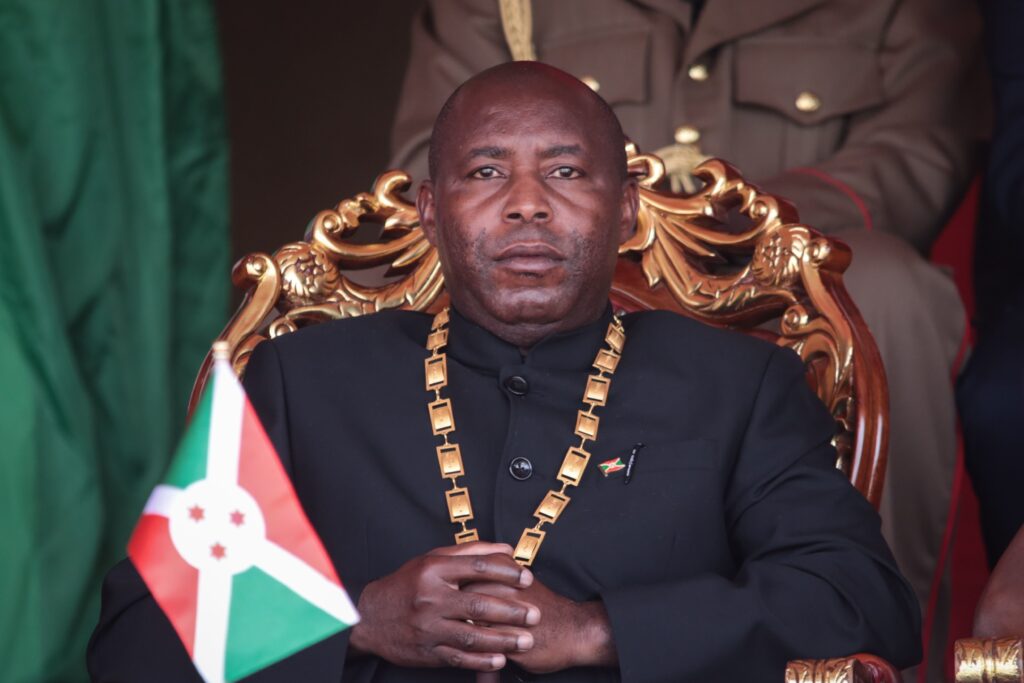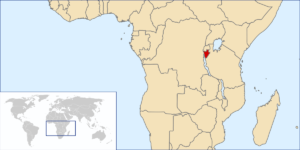Burundi’s leader revives painful memories of past genocides
Colin Stewart is a 45-year journalism veteran living in Southern…
U.S. rebukes Burundi president for saying that gays should be rounded up and stoned

With one homophobic outburst, the president of the East African nation of Burundi last month revived memories of his nation’s blood-soaked past genocides and deflated some Westerners’ recent optimism that the country was making progress on human rights.
The United States on Friday criticized President Evariste Ndayishimiye for proposing that homosexuals in Burundi should be rounded up and stoned.
In a conversation on Dec. 29 with journalists and members of the public, Ndayishimiye said, “I think that if we find these kinds of people in Burundi, it is better to take them to a stadium and stone them. … That’s what they deserve.”
Although Ndayishimiye is known as a devoted Roman Catholic, his appeal for genocide targeting homosexuals came a mere 11 days after the Roman Catholic Church announced its latest easing of its longtime discrimination against LGBTQ people. On Dec. 18, Pope Francis announced that homosexual couples can now receive blessings from the Roman Catholic Church — a policy that was met with widespread scorn from Catholic bishops in Africa.
Genocide of 1972, genocide of 1994
Ndayishimiye’s remarks, which do not have the force of law, come 51 years after the 1972 slaughter of at least 100,000 members of the Hutu people in Burundi and 29 years after the 1994 slaughter of at least 500,000 members of the Tutsi people in Burundi.
Since 2009, Burundian law has threatened a prison sentence of up to two years for same-sex intimacy.

More recently, Burundi was sanctioned by the European Union and the United States over human rights violations and violence targeting political opponents of the regime. The EU sanctions were lifted in 2022, following the lead of the U.S.
At the time, human rights advocates protested that the lifting of sanctions was premature.
“Nothing on the ground in Burundi gives any foundation or basis for lifting the sanctions,” said Mausi Segun, the executive director of Human Rights Watch’s Africa Division. “The EU and others like that institution are too much in haste to give credit to the government of Burundi. …
“The killings, the disappearances of people suspected by the government of working with the opposition or with so called rebel groups,” said Segun. “All of this continues to happen in the last one and half years that Ndayishimiye has been in office. We have seen hundreds of these types of cases, hundreds of cases of Burundians who have been killed unlawfully in that country and the disappearances of many more.”
Similarly, in 2021, U.N. investigators found that no reforms had been adopted to end human rights violations in Burundi.
Soft-spoken opposition to genocides
On Jan. 5, U.S. State Department spokesman Matthew Miller issued this statement:
“The United States is deeply troubled by President Ndayishimiye’s remarks targeting certain vulnerable and marginalized Burundians. We call on all of Burundi’s leaders to respect the inherent dignity and inalienable rights, including equal access to justice, of every member of Burundian society. Such efforts are an essential precursor to spur the economic growth necessary to improve conditions for all Burundians.”
The statement did not threaten a renewal of sanctions.
In criticizing Ndayishimiye, the U.S. added its voice to those of many human rights advocates who protested his call for genocidal violence, including Human Rights Campaign President Kelley Robinson, French MP Marie Lebec, the online activist organization All Out, and Ugandan LGBTQ activist Kasha Jacqueline Nabagesera.





And now young LGBT+
Burundians are fleeing this small landlocked country. They flee the violence and hatred. Many seek safety in Kenya.
They arrive with no money, no plans, no food, no shelter. Existing community based organization’s safe houses are not equipped or funded to handle this influx of additional asylum seekers plus those asylum seekers fleeing “Christian” Uganda.
One result of President Ndayishrefug’s hateful words,
LGBT+ refugees in Nairobi have recently been attacked by Kenyan Street youths throwing stones.